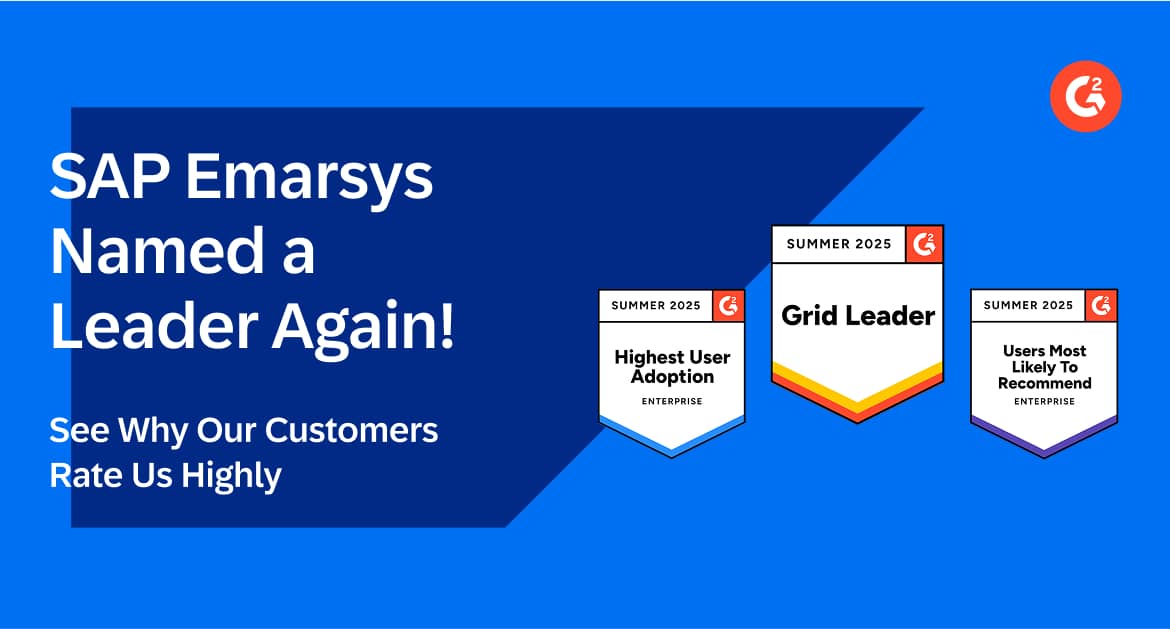It wasn’t so long ago that artificial intelligence was just a vague but heavily-hyped (albeit capable) technology. AI promised to radically change the way marketing operated, but the tech was haloed by many unknowns:
Would it be too complex to implement? Would it steal jobs away from marketers? Would it pave the way for machines to take over the world and conquer humans?
The answer to many of those questions, of course, is no (in spite of what The Terminator movies might have you believe). But many marketers continue to speculate about artificial intelligence. They hold a wide range of opinions about the implications of the technology.
The problem is, few marketers actually understand AI’s potential to revolutionize how they achieve marketing goals
AI Works Alongside Marketers, Not in Place of Marketers
Working in downtown Indianapolis, Indiana, I occasionally run into former colleagues or professional acquaintances — mostly fellow marketers — who I haven’t seen in a while. Naturally, we’ll take some time to catch-up.
If they ask, “What are you up to these days?” I’ll mention that I write content for an omnichannel customer engagement platform company. If they press deeper, I like to mention some of the specifics about the platform — notably, its artificial intelligence component.
For some, this is where their eyes start to glaze over. They think we’ve gone into deep tech territory and they can’t hang in the conversation (again — these are marketers I’m talking about). Others stay poised, but raise a curious eyebrow. They’ve heard AI as a marketing buzzword, but beyond that, they remain skeptical.
I’m not too surprised by these exchanges. It turns out, a good deal of marketers are not fully informed about AI adoption. They’ve been jaded by the baggage of wary, cautious skeptics who fear the worst aspects of AI. Some even believe AI will replace marketers, removing the human element of marketing and altering the landscape of the industry forever.
The reality is, AI is a tool to be used by marketers, enhancing what they can accomplish. AI functions best alongside marketers, not in place of marketers. In fact, that’s why it’s built into the Emarsys platform — to better enable marketers, not displace them or disempower them.
This is the point in the conversation where I’m usually asked something like: why would marketers use AI? Unless you’re in technology or robotics, would a company even need to adopt AI?
Webinar | Why is AI adoption a must for marketers in 2020?
So Why Should Organizations Adopt AI?
Part of better understanding AI is related to gaining clarity on the “Why”: why should organizations adopt AI?
It comes down to better use of data, better information, and better execution.
AI and its subsets — like machine learning, deep learning, and predictive analytics — enable you to connect data, decision-making, and marketing automation in a way that you’ve never been able to before. You can then predict crucial aspects of your customers’ behavior, which informs important decisions about overall customer lifecycle.
Sorry, mere mortals: unaided, your brainpower alone won’t allow you to do what AI can do from an analytics perspective (more on this later). But what your marketing expertise does allow you to do is decide how to use AI to get the marketing outcomes you want.
By adopting AI, marketers can fully leverage their data to nurture, scale, and automate personalized customer experiences across multiple channels and devices. Several years ago, this would never have been possible.
Reactive vs. Proactive Marketing
Another major advantage of AI: it allows for a proactive approach to marketing.
For years, marketers have been reliant on post-purchase engagement with their customers, having to wait until a purchase was completed to inform the type of communication those customers would receive. This kind of reactive marketing all but ensures customers receive irrelevant or untimely communications. Delivering 1-to-1 personalized customer experiences is near impossible with a reactive approach.
However, AI allows you to take a proactive approach — one that is anticipatory and predictive.
The predictive capability of AI technology is the key to proactive marketing. And we aren’t talking about some soothsayer, reading-the-tea-leaves kind of predictions. We’re talking about sophisticated, advanced algorithms that, using your data, learn and anticipate customer preferences and behavior with an incredible degree of accuracy.
For example, AI segmentation makes it possible for you to calculate the likelihood of a customer action happening or not happening via prediction scores. Segments like “likely to remain inactive,” “likely to disengage,” or “likely to engage” can be determined by the tech. Over time, as your data becomes more robust, AI becomes even better at predicting customer behavior.
AI also predicts the most relevant products, content, and offerings for a given group or segment. It will automate those messages, delivering them at the time and place most suitable for a customer, and through whichever channel the customer prefers.
Few marketers understand how AI can revolutionize their marketing. Do you?
Applying AI in Day to Day Campaigns
Upon adoption, AI can play a vital role in the day-to-day marketing activities of your organization. Common use cases include:
- Send Time Optimization (STO)
- Open Time Content (OTC)
- Product Replenishment
- Omnichannel Engagement (Email, Web, Mobile, In-Store, etc.)
- 1-to-1 Marketing (Incentives, Birthdays, Abandoned Cart, etc.)
- Ad/Banner Personalization
- Revenue and CLTV Predictions
- Buyer and Lead Predictions
Done manually, many of these use cases are tedious and resource-intensive, difficult to carry out consistently, or in some instances, flat-out unattainable. But you can employ AI to execute many of these marketing use cases with a high degree of efficiency and consistency while making time-intensive ones scalable and easy to execute.
Although you can automate some of these use cases with basic marketing technology, having an AI component allows for a “personal touch,” because it enables you to create individualized, proactive interactions with customers. As a result, you get better business outcomes through increased customer retention, growth, and revenue.
It’s Not a Fad: AI is a Proven, Industry-Focused Technology
We’ve now seen that AI has started to live up to its promise of revolutionizing marketing.
What’s more, AI has proven itself to be a profound tool to be used by — and function alongside — marketers to create powerful customer experiences. It is not the job displacer that some feared it would be. AI actually frees marketers from repetitive, time-intensive tasks and allows them to focus on the more crucial goals of marketing: maximizing customer engagement and driving revenue for their organization.
We also know that failing to adopt AI puts organizations at a disadvantage. Not only will non-adopters disappoint customers who have come to appreciate and expect personalized communications from brands they shop with, but these organizations will be left in the wake of competitors who adopt AI and fully integrate it into their marketing efforts early on.
Having AI integrated into our customer engagement platform allows our clients to engage in proactive, omnichannel marketing with their customers and achieve results that actually move the needle for their brand. In fact, our industry-focused AI technology was cited by Forrester in their recent Forrester Wave™: CCCM (Independent Platforms), Q4 2019 Report — a report in which Emarsys was named a leader.
Final Thoughts
It’s difficult to cover the full gamut of reasons why marketers should be adopting AI in a single blog post (and even more so when conversing with a colleague in passing). However, for a more comprehensive deep dive into AI adoption for marketers, sign up for this upcoming webinar. You’ll hear from industry experts like Raj Balasundaram, SVP of AI at Emarsys, as well as guest speaker Rusty Warner, Principal Analyst at Forrester.
Stop thinking of AI as a marketing buzzword, or worst, the death rattle of traditional marketing. Learn more about AI adoption and embrace it. AI is truly the most powerful marketing tool available, so make sure you know how to leverage it.
Handpicked Related Content:
- How AI Is Transforming the Customer Experience
- How CMOs Are Using AI Marketing to Boost Efficiency and Revenue
- Emarsys CEO on Why We’re a Leader in The Forrester Wave™: Cross-Channel Campaign Management Report (Independent Platforms), Q4 2019
Webinar | AI Marketing 2020: How Adoption Can Predict Customer Behavior and Drive Business Outcomes












